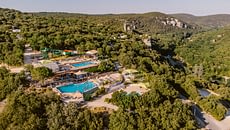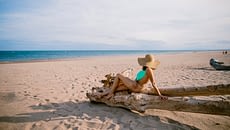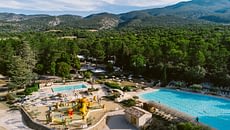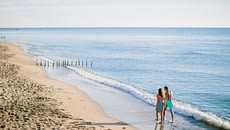
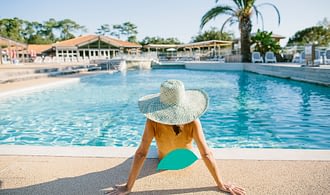
Everything you need to know about naturism when camping
Those who don’t practise naturism will be surprised to go on a naturist campsite and note that life here happens exactly as on a traditional campsite. With one small difference: holidaymakers swim and have fun naked. However after a few hours, beginners start to see some specific features, linked to naturism’s values and which guarantee holidaymakers a quality stay.

Respect for nudity
“You must respect nudity”: the first commandment on naturist campsites. The lack of clothes is quite normal on a naturist campsite, and even recommended and encouraged. Nudity is ever-present and part of the landscape, as is the lush setting in which the establishment is located. Consequently, nudity should be respected, as you’d respect the environment. Remain natural, be discreet and kind towards other campers. Several naturist campsites remind you of this essential naturism value, using signs with messages such as “Let’s respect each other and live the naked lifestyle”.

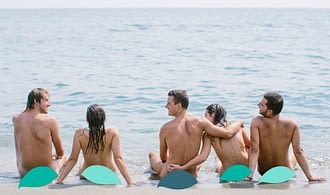
Tolerance and our perception of others
Many who don’t practise naturism are surprised by the peace which reigns on a naturist campsite, during their first experience. Strangely, although naked, they feel less noticeable than when they wear clothes. Why? Because clothes have a social connotation which sets us apart. Wearing nothing, we’re all alike, all equal, all imperfect. In fact, you feel less judged than elsewhere.

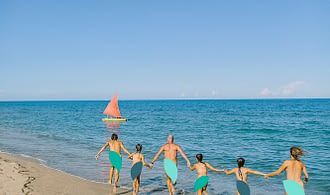
Children and teenagers
Naturist resorts and the Fédération des Espaces Naturistes (a group of naturist campsites and holiday resorts promoting naturism), in France recommend naturism with your family. Moreover, naturist campsites have children’s games, clubs for young holidaymakers, water parks with swimming pools, small pools and paddling pools.
They offer several activities and forms of entertainment for adults and children alike, to promote naturism for the whole family. Generally, children have no problem with taking off their clothes. Quite the contrary. On the other hand, teens may prove more reticent, as they aren’t always comfortable with the changes their body undergoes. Although nudity is compulsory in certain areas, naturist campsites therefore permit children and teenagers wishing to protect their modesty to wear a pareo.
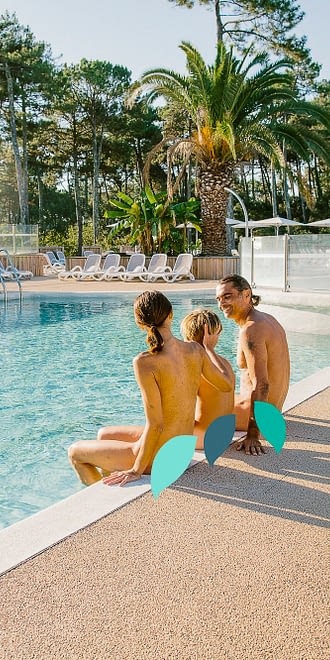
Each naturist campsite has its own rules. These are made available to holidaymakers, generally at reception, so they are made aware of the basic rules, such as respecting nudity, discretion, complete rejection of voyeurism and exhibitionism, kindness towards children and teens. These rules also govern wearing clothes. As a general rule, nudity is compulsory, in particular in the swimming areas. If you don’t already practice naturism, you’ll quickly understand that the atmosphere is much better when nobody wears clothes. That having been said, wearing clothes may be tolerated in some instances, for example in cold weather or when it’s raining, in cases of illness, during a dance or themed evening, etc.
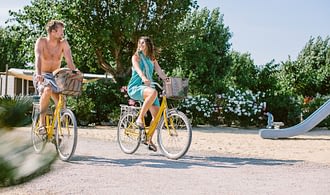
Good hygiene
Perfect hygiene is required in naturist resorts. Holidaymakers must use a towel when cycling around the campsite, seated at the bar or the restaurant, etc. Make enquiries at reception upon your arrival to become familiar with the hygiene rules and France 4 Naturisme’s charter for naturist resorts.

The environment and sustainable tourism
Lastly, naturist campsites make countryside and the land conservation a top priority. To promote sustainable tourism, they collaborate with local farmers and favour fresh produce grown in the region.
